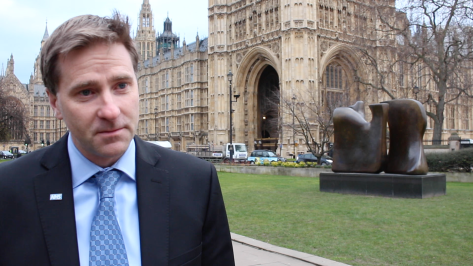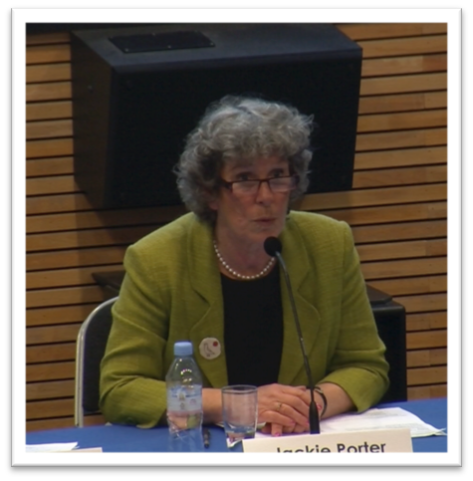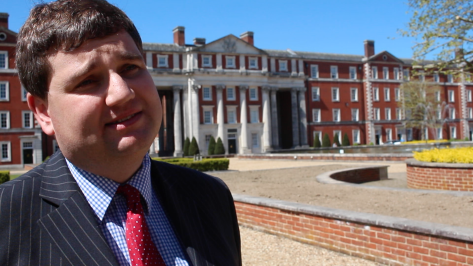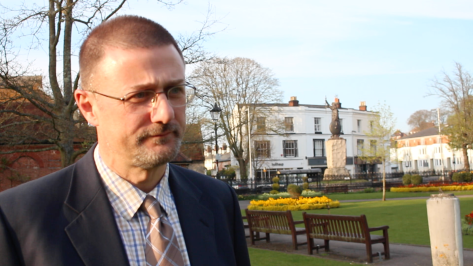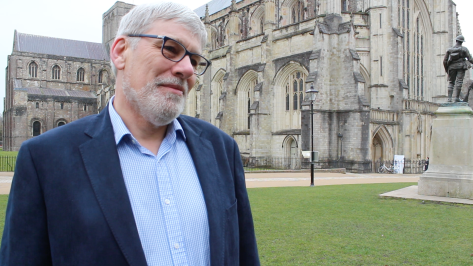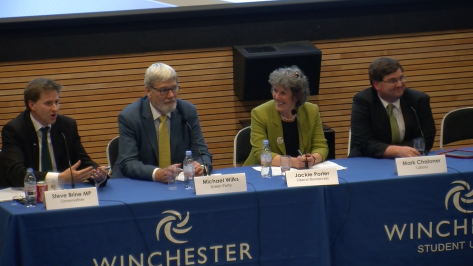For my final year project I decided to produce a piece of journalism that reflected the 2015 General Election.
I wanted to create a constituency profile because I thought it would be useful to learn more about politics and most importantly about the General Election. After seeing the success of the Eastleigh by – election in 2013, which graced all media platforms and raised Hampshire’s profile across the country, I wanted to see what the General Election would entail. I decided to cover Winchester for because it’s inevitably on our patch. The constituency isn’t a key battleground seat but it’s still classed as a battle between the Conservatives and the Liberal Democrats. I was also on a work experience placement with the Hampshire Chronicle a month before the election took place so any extra material that I discovered was a vital impetus for my project.
Election Profile
I produced a three to four minute election profile, which included interviews with the local MP and all the prospective candidates running for the seat. It focused on key issues in the area and what constituents thought about the future of their city.
I interviewed all the candidates including Winchester MP, Steve Brine (Conservatives), Mark Chaloner (Labour), Martin Lyon (UKIP), Jackie Porter (Liberal Democrats) and Michael Wilks (Green Party). It was paramount to interview Brine on Westminster’s College Green because he was an MP at the time. It was a great experience interviewing a politician and being alongside other television news broadcasts. I interviewed the prospective candidates in popular hotspots in town, so the profile illustrated parts of the area. Mark Chaloner’s interview was on the grounds of Winchester Military Museum, Martin Lyon’s interview took place at Abbey Gardens, Jackie Porter was interviewed at the University of Winchester and Michael Wilks was at Winchester Cathedral. I wanted to do all my interviews outside so they all looked consistent and had attractive backgrounds. The candidate’s interviews remained remarkably short because I didn’t want to base the entire profile on them. Politics maybe about politicians when they adopt national and local decisions which ultimately affect society. But primarily it’s how those decisions affect people and that’s what I tried to capture within my piece by adding vox pops and a case study. It’s paramount to maintain impartiality when reporting on elections; in doing so the Greens are considered as a minor party but in this case I wanted to give the prospective Green candidate as much time as the major parties.
The opening of the profile starts off with the most popular attractions of Winchester such as the cathedral and the King Alfred. I wanted to address the importance of the city with a drop intro and a sequence of the famous statue. Winchester is an affluent part of the country and I tried to highlight that with my voiceover. I decided to do a wipe of the candidates and didn’t place too much emphasis on them. Originally I wanted to use full size shots of the candidates with a focus on large backgrounds but I got in tight with their faces to make the interviews more intimate. I included natural sound at the start so the profile could make a stronger impact.
My voiceover contained facts and local issues of the area. One of the mounting issues in the constituency is a constant demand for affordable housing. I illustrated this by filming shots of luxury housing developments, which are taking priority over social housing.
Including a case study was probably the vital element of my piece. I chose a local independent café, The Forte TeaRooms. I localized a national story, with the Prime Minister, David Cameron gaining an election boost by 5000 small and medium sized businesses’ signing a letter stating that the Conservatives’ were the right party in supporting them. I wanted a case study to almost challenge this proposal.
The café owner’s voice is hindered by extensive background noise, which doesn’t do the interview any justice but the owner delivered good quotes.
Vox pops maybe the last resort in journalism but I included them in my piece to illustrate that elections are about the electorate. Even upon researching how to conduct an election profile, they all included vox pops, so it was necessary to do the same. Rather than asking members of the public on the high street who they were going to specifically vote for, I asked them about their ‘election prediction.’ Basically revealing what the outcome of the election could be. I chose a variety of people of all different ages and genders to achieve balance in the piece.
It was necessary to add a piece to camera since I was telling the story. I feel more comfortable doing a walk and talk rather than standing on the spot. The beginning of the shot looks like I’m out of focus because I’m quite far away but as I get closer to the camera I come into natural focus and I think that bodes well.
There are a few technical issues in my piece such as poor sound levels with the Lib Dem candidate, Jackie Porter, the café owner and my piece to camera at the end. Essentially I tried to use a variety of shots in the profile particularly with the cutaways.
Weekly Reports
My first weekly report consisted of an interview with the Lib Dem Health and Social Care Minister, Norman Lamb. It was an event based at the Hampshire Record Office and Lamb gave a talk on the future of the NHS and mental health. I attended the talk and got an interview with him after. I decided to do a radio package and a text story with it. Lamb openly talks about the party putting mental health at the forefront of their election campaign and also his prospects about becoming the next leader of the Lib Dem party if they don’t perform well in the upcoming election. It was a good opportunity to interview a politician who is solely in a cabinet position.
My second weekly report was about the future of tuition fees. There was an event held at the University of Winchester: ‘General Election Q&A’s debate with the local candidates.’ I originally filmed the whole event but was barred by technical issues. Overall the debate was remarkably dull but the very last question was about tuition fees. The debate on the fees is such a controversial issue that it did take some precedence in the run up to the election. So I wanted to do a news story on the history and future of higher education with reactions from the local candidates.
My third weekly report was about the local candidates running for the seat. I wanted to make sure that the quotes I used differed from the video profile. I wrote about local and national issues concerning each candidate and party. For instance the future of the UK in the European Union has been at the expense of the Conservative party, which I allocated to Steve Brine. Also the majority of the interviews were relatively long and I wanted to develop them in a different format. Also I made a conscious decision to write my reports just so that I have the chance to improve on my news writing skills.
General Election 2015
Taking part in the General Election was an unbelievable experience, not just myself but for the whole WINOL team. Doing a live outside broadcast at the Winchester Count was a huge role to take on. OB’s are a vital procedure in elections because the news studio are relying on the OB operation to get declaration results and find any potential news stories. I wanted to take on the role considering that I covered Winchester as part of my election profile. I also wanted to move away from the studio and branch my presenting skills in a different environment. Having a gift for ad- libbing is a key skill in news broadcasting so that was something I was quite anxious about. But making semi – scripted notes in advance and glancing down at the notes when I was on air made presenting a lot easier. Winchester wasn’t the most exciting election count but it was important to make it sound fascinating. Having already established a rapport with the local candidates it was easy to get interviews with them, which could be then added to the show.
It was imminent that we were going to experience technical difficulties on the night. The Winchester OB team was hindered by poor internet connection in the press gallery. So all the Skype video calls took place outside of the press gallery because the connection was a lot quicker. Ultimately, it would have been great to do Skype calls inside the press gallery with the count as a backdrop. The declaration result wasn’t released until 8am and there was much speculation as to why it took so long because it was due between 5am – 6am and that’s what I tried to focus on in my remaining OB takes.
Regarding the election coverage, the website reached just under a 1000 views. The live stream blog received about 700 views for the entire broadcast. But between 10pm – 2am live streaming was predominately around 100 views. It’s evident that the most of the views dwindled at 5am when most of the election counts had already been announced. You could say that social media played an important part in the election with repeated shared posts on Twitter, Facebook and Instagram to drive more views.
It was also a great experience being in the press gallery with the likes of ITV and the BBC. It was a platform to build contacts and to see how other journalists report on elections.
Winchester may have been a safe seat but it was an invaluable experience learning about the power of politics as well as reporting on elections.
